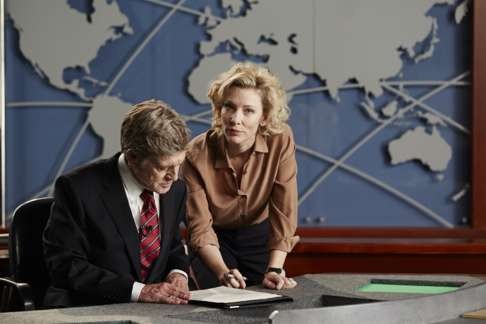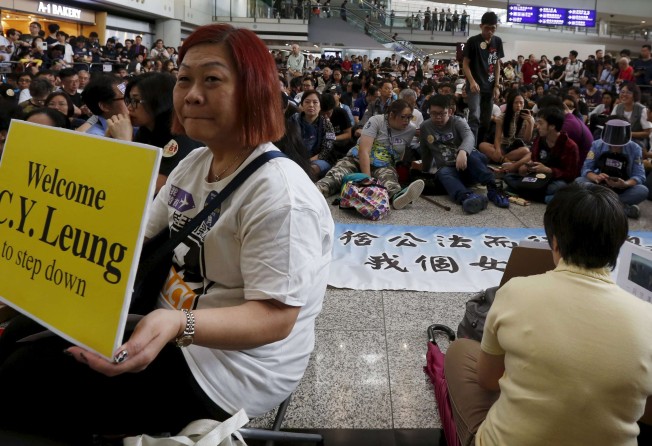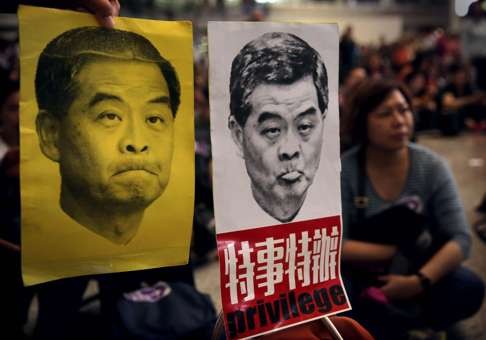
Where is the proof of Hong Kong leader Leung Chun-ying’s abuse of power over left luggage?
John Chan says with no evidence, the brouhaha over the chief executive’s daughter’s airport baggage, instigated by the pan-democrats and others opposed to Leung, is really a storm in a teacup

The film Truth by Robert Redford, which played recently in Hong Kong, tells the true story of the production and airing of a CBS 60 Minutes programme in September 2004. It used four of six documents obtained by producer Mary Mapes from unverifiable sources within the Texas Air National Guard to question – two months before the US presidential election – whether George W. Bush, who was seeking re-election, had completed his training at the Air National Guard in the 1970s.
The documents, which purportedly came from Bush’s commander, the late lieutenant colonel Jerry B. Killian, criticised Bush’s service in the Air National Guard, accusing him of absence without leave and failure to take a mandatory physical examination.
After the programme was aired, it immediately became the subject of harsh criticism, centred on the authenticity of the documents. Less than two weeks later, CBS apologised for having made a “mistake in judgment” in using the Killian documents, stating that it “cannot prove that the documents are authentic, which is the only journalistic standard to justify using them in the report”.
Soon after, CBS set up a review panel to look into what had gone wrong and what action needed to be taken. The findings cost Mapes her job and were said to have led to iconic news presenter Dan Rather retiring a year earlier than scheduled.

Using CBS’ standard to examine Hong Kong Chief Executive Leung Chun-ying’s elder daughter’s “bag-gate” incident, it is easy to conclude that Leung was wrongly accused by many pan-democrats and the local media of having abused his power in the saga.
The only “evidence” that points to an alleged abuse of power is that Leung had a brief phone conversation with a Cathay customer services officer at the time his daughter’s left luggage was being returned by Cathay staff.
So far, no one from Cathay has come out to reveal exactly what was said in the phone call. According to the chief executive’s daughter, Chung-yan, he called her mobile to say farewell while she was with the Cathay officer waiting for her lost bag. She told her father what was going on and passed her phone to the Cathay officer, and a brief conversation ensued. At the time of the call, Avseco, the company in charge of airport security, had apparently already given approval to Cathay staff to take Chung-yan’s handbag through security checks to the boarding gate.
There is no evidence to show the phone conversation in any way influenced how the left luggage was handled. Thus, the media’s accusations of an “abuse of power”, with no verifiable facts, fall far below journalistic standards.

The “bag-gate” incident is a storm in a tea cup. Nevertheless, it prompted the gathering of more than 1,500 protesters at the airport, instigated by anti-CY pan-democrats. Those who dislike the chief executive and people with a certain political orientation purposely turn a blind eye to hard facts and make use of every incident to attack their biggest foe.
Yet, such senseless rhetoric always has a market here, given that local politics is characterised by politicians’ incessant attempts to twist every small incident in their favour. Sadly, what matters in politics now is perception, not reason.
If we examine the evidence of the incident squarely, and avoid letting our political bias get in the way, then the relevant questions to ask are:
First, did the chief executive’s daughter receive any preferential treatment in the incident? Perhaps.
Second, did the chief executive himself abuse his power? No.
In the end, it could be best described as a hiccup in Government House’s political public relations. An early apology from Leung, expressing regret for causing unnecessary misunderstanding among the public, would have quickly doused the flames and avoided the outpouring of criticism. However, saying sorry is clearly something that our obstinate chief executive is most reluctant to do.
John Chan is a practising solicitor and a founding member of the Democratic Party